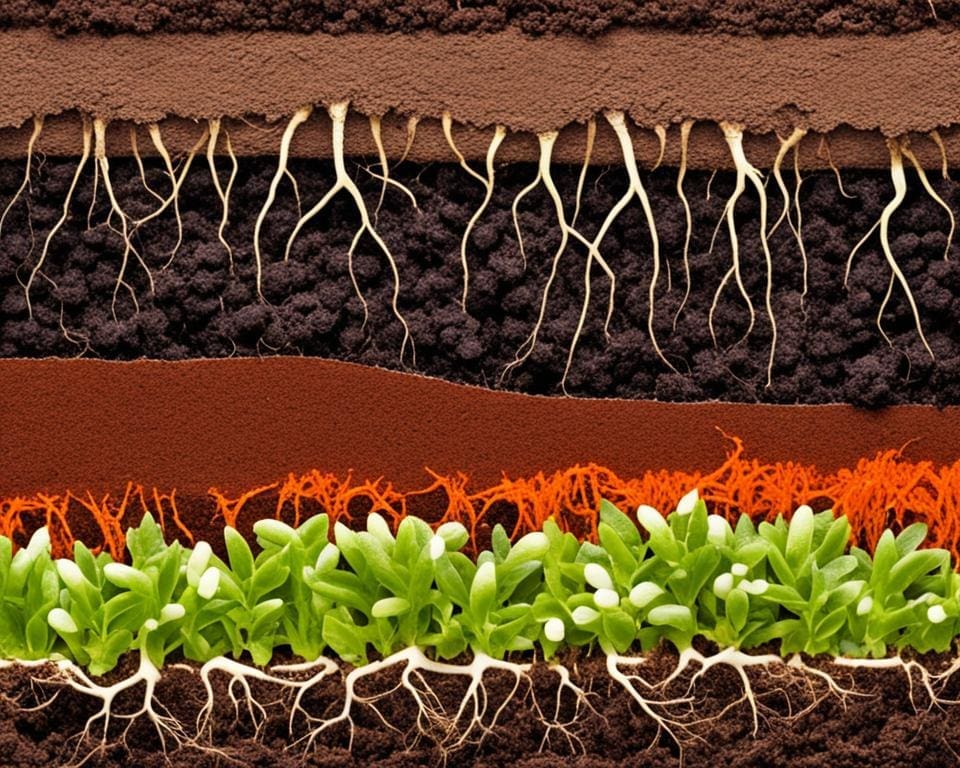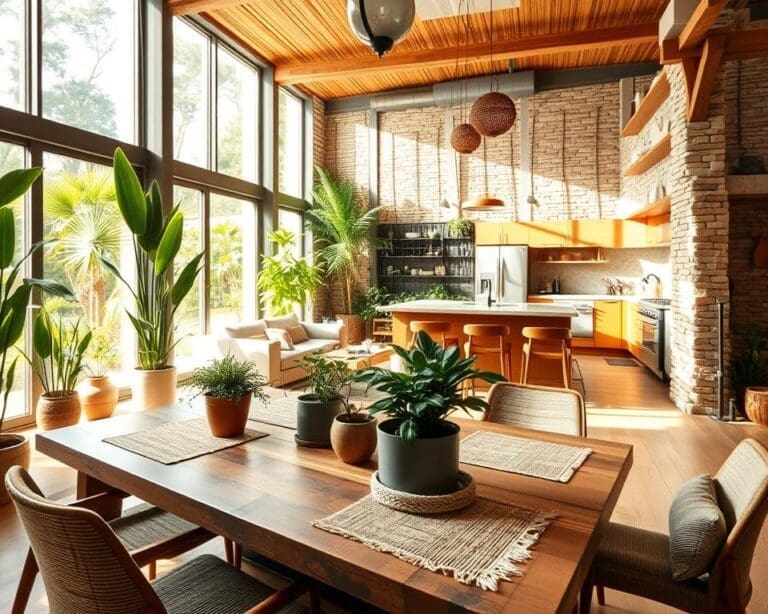Understanding fertilizer facts is key for any gardener wanting a lush garden. Fertilisers are vital, providing plants with needed nutrients during all growth stages. This leads to healthier plants and better yields. However, many gardeners may not pay enough attention to this, especially in container gardens where soil nutrients aren’t easily exchanged.
By using fertilisers wisely, you can boost both growth and fruit production. This makes fertiliser knowledge very important for gardeners aiming for high success.
Understanding the Role of Nutrients in Plant Growth
Plants need a variety of soil nutrients to grow strongly. Three main nutrients are nitrogen, phosphorus, and potassium. Each nutrient supports plant health in different ways.
Key Nutrients for Healthy Plants
Nitrogen helps leaves grow and is key for leafy veggies. It boosts plant growth by aiding in protein and chlorophyll production. Phosphorus, on the other hand, is good for root development and helps seeds start growing. It also makes plants flower better, which leads to more fruit.
Potassium is vital for a plant’s overall health. It supports the development of flowers and fruits and helps fight off diseases. Plants lacking potassium may not be as strong when the environment changes.
Plants also need secondary nutrients like calcium, magnesium, and sulphur. Trace elements such as copper, iron, and zinc prevent nutrient shortages in the soil. A well-balanced soil is crucial for plants to take in nutrients, especially after long-term farming and heavy rain has worn it out.
To help plants grow well, knowing what each type likes in terms of nutrients and pH is important. Commercial fertilisers have different nutrient ratios, shown by numbers like 10-20-15. These numbers tell you how much of each nutrient is in the fertiliser.
By watching their plants and testing the soil, gardeners can figure out the best way to feed them. Using both slow-release and water-soluble fertilisers means plants get the right nutrients at the right time.

Fertilizer Facts: Boosting Your Garden’s Growth
For a flourishing garden, knowing about organic and synthetic fertilisers is key. Each type has its own benefits for plant and soil health. Getting to grips with their differences can really boost your garden in a sustainable way.
Exploring Organic and Synthetic Fertilisers
Organic fertilisers come from natural materials like bone meal, composted manure, and plant leftovers. They slowly release nutrients, helping plants grow and making the soil full of life. Over time, they can make the soil healthier and plants stronger.
Synthetic fertilisers give plants a quick nutrient boost and are full of nitrogen, phosphorus, and potassium. These essential elements help plants grow but can harm the soil if used too much. Despite being more affordable, they might lead to issues like nutrient leaching.
- Organic fertilisers are gentler on plants.
- Synthetic fertilisers work fast for quick nutrient boosts.
- Soil’s texture and pH shape nutrient use, so testing soil is crucial.
Knowing the N-P-K ratios on fertiliser packs is important. These ratios show the levels of nitrogen, phosphorus oxide, and potassium oxide present. Understanding your plants’ needs is key to successful gardening.
The choice between organic and synthetic depends on your gardening values. Sustainable gardening focuses on enriching soil and promoting health, balancing plant growth with environmental care.
Creating Your Own Fertilizers at Home
Making homemade fertilisers is a great step towards soil improvement and reducing your eco footprint. With simple ingredients from your garden, you can create natural plant feed that’s effective and eco-friendly. For example, soaking comfrey leaves for up to five weeks makes a strong liquid fertiliser full of nutrients. Also, nettles soaked in water for a bit give a nutrient-rich solution perfect for your plants.
You can also try homemade compost tea. Just soak mature compost in water. Let it sit for 2 to 24 hours to get the most nutrients without using artificial products. And diluted urine gives a safe nitrogen boost. For veggies, mix 1 part urine with 10 parts water. It’s a smart way to recycle waste.
These natural methods are not only better for the planet. They also make your soil healthier over time. Using things like spent coffee grounds or banana peels enriches the soil. And it’s in line with sustainable gardening. Adding these habits to your gardening routine will help your plants thrive. Plus, you won’t need to buy commercial fertilisers.








